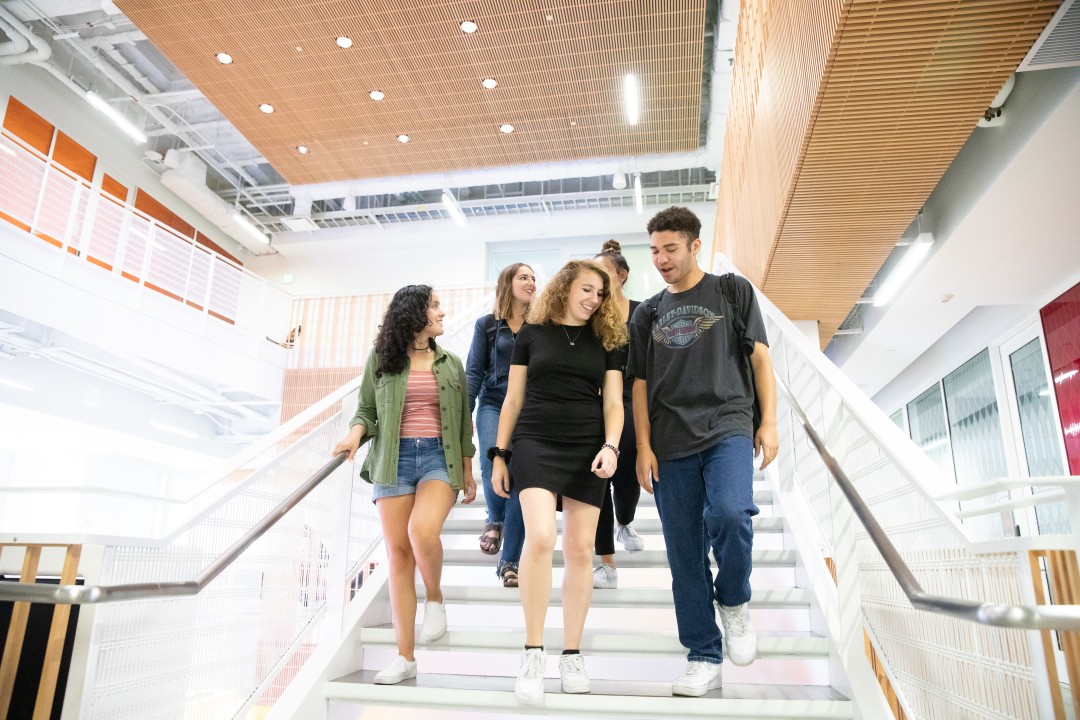
Annenberg Insights: Re-thinking How We Use Data to Support Student Success
At USC Annenberg, we are teaching, training and inspiring students to fill a talent pipeline of communication and media professionals — a job category that is projected to grow by 14% over the next 10 years, faster than any other occupation. However, we recognize we need to do more than just provide skilled employees to meet this demand. We need to create an enriching academic experience that prepares our graduates to truly thrive in this dynamic and complex industry.
While we are relentlessly committed to improving the student experience by driving innovation in advising, professional development and career services, our infrastructure to accomplish this didn’t match the caliber of our ambitions. We were managing various streams of information — often resorting to pencil and paper — and realized that to best support this generation of students, our alumni and industry partners, we needed to leverage our knowledge and expertise more effectively.
We wanted to gather, assess and draw insights from a multitude of internal and external data streams, ideally to mine insights from all, so we could improve the way we guide students along their academic journeys by encouraging them to choose courses, programs and extracurricular activities that contribute to their intellectual growth and career readiness. We also needed to create a roadmap that anticipates the future of work, providing our students with new knowledge and skills that position them for successful, fulfilling professional lives in this evolving landscape.
With funding support from USC Annenberg parents that allowed us to explore these entirely new ways of innovating in advisement and career services, we searched for a technology partner who could help us effectively and efficiently realize our vision. I turned to Salesforce.org CEO Rob Acker, someone whose work deploying technology to improve educational outcomes I respect, to see what he thought.
When I spoke with Rob, he shared our enthusiasm for the project, and was excited by its potential to serve students and its value for universities and future employers. “Deeply understanding every touchpoint of the student journey, from admissions to alumni, is key to driving innovation and transformation,” he said. “The unique data and insights of those experiences are critical to shaping more meaningful outcomes and ensuring that future opportunities will be more accessible and successful.”
Rob’s invaluable perspective helped underscore our goals as we began designing and now developing the Annenberg Insights project.
This groundbreaking platform uses a research-based approach to redefine how we plan, guide and support student academic and career pathways. Thanks to our Salesforce collaborators and an enormous amount of work by our team and our colleagues across the university, Annenberg Insights is configured to capture every step of a student’s journey — including coursework, research, extracurricular activities and internships — and to create a portrait of each student’s unique pathway. It takes data that we have never put together in one place — admissions, student, alumni and curriculum data — and combines it with external data about labor markets, industry sectors and job skills to provide a dynamic and holistic view of student success.
We can combine this rich student data with labor market data to fuel state-of-the-art predictive analytics about industry needs, emerging careers and in-demand skill sets. Using the data and analysis generated by Annenberg Insights, advisers can examine our more than 300 courses more closely to help students identify optimal academic choices, or generate insights into classes or extracurricular activities that have served our alumni well in their careers. We can look at external labor data to identify rapidly growing sectors, high demand or emerging skill sets. We are just beginning to tap into the wealth of data-supported guidance we can provide.
With Insights, we are building a powerful data-driven infrastructure that is transforming our ability to advance our strategic priorities of student success, curricular innovation and dynamic connections to our industries of practice.
USC Annenberg and Salesforce are incredibly excited about the potential of this work. Over the next year, I will be sharing more, including behind-the-scenes interviews with some of our critical collaborators, glimpses into how the Insights platform is helping our students, faculty and staff, and the shared learning opportunities it offers our industry partners.
As we explore our new capabilities and the insights they generate, we would like to hear from you. What questions should we be asking about career readiness in 2022? Are there data points you would like to query about the future of our industries? Are there insights we could share as we prepare the talent pool of the future?
Nursing Manager at Liberty Mutual Insurance
1y1. Are student-leaders comfortable with expressing their ideas in small, medium and large groups? 2. Have they ever trained someone else? If yes, this increases their communication skill. That allows collaboration with peers and bosses to progress easier. 3. Have they had conflict resolution opportunities? 4. What projects can give them critical thinking practice?
Data Solutions for Higher Education
1yGail Martineau Robert Griffiths
Data connecting people, education, and work
2yBrian D. Reed, PhD
Senior Director, Strategic Relations (AMER) at Salesforce
2yI love this project. I think that combined data like this would be helpful at any stage of our careers. How much could data like this help identify opportunities for continuing education, upskilling/reskilling, emerging markets/career paths, or identify skills we didn't even realize we have that can be leveraged for doing good in the world? This project will ultimately help to guide students towards new paths they may otherwise not have known about. We use data in our everyday lives to track our movement/health, manage our money, find new music and entertainment - why not use it to guide our education? I love that Annenberg is doing this in a thoughtful, responsible, respectful way - data as a piece of the puzzle with lots of room for exploration and interpretation from their team of student advisors. Can't wait to see where this goes!